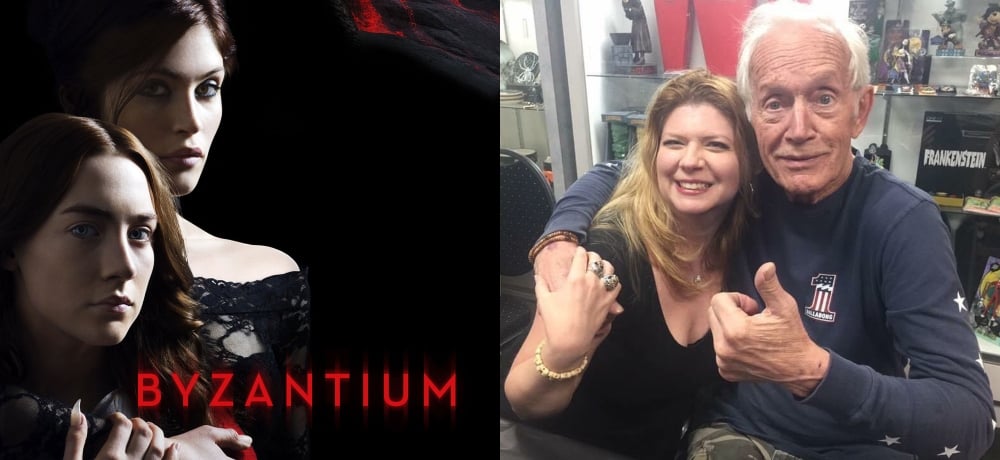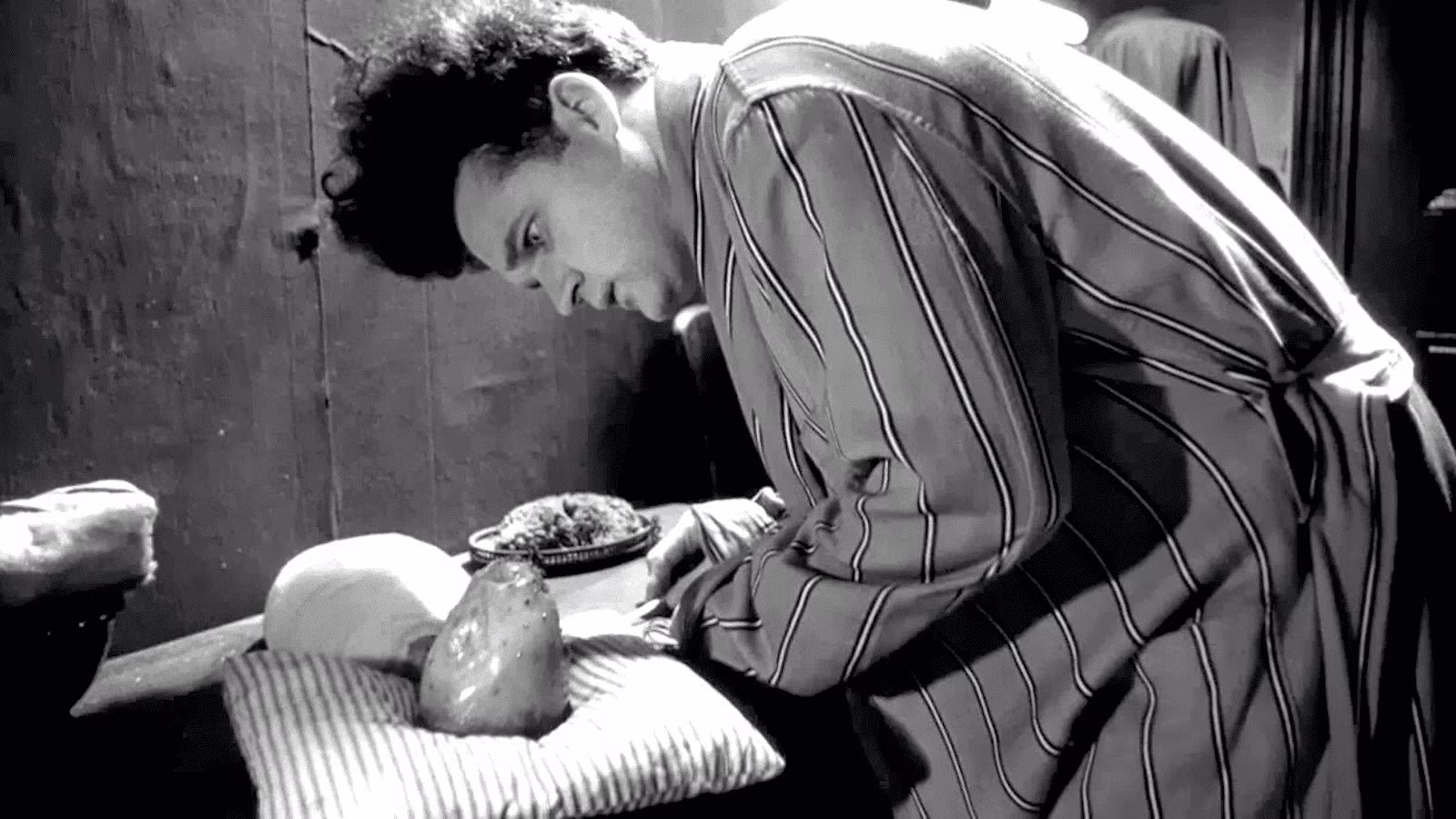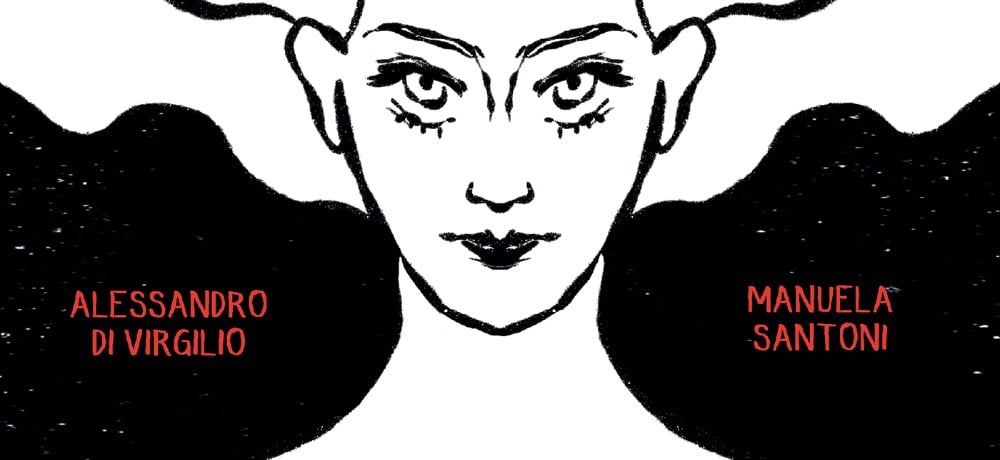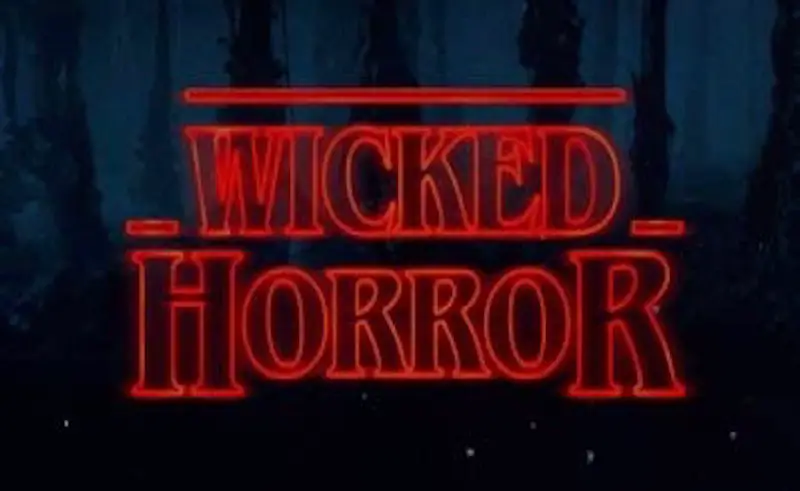Let’s Scare Bryan to Death: BYZANTIUM with Izzy Lee



This month on Let’s Scare Bryan to Death, we’re sinking our fangs into a vampire tale from director Neil Jordan. But no, I’m not talking about his classic adaptation of Anne Rice’s Interview with a Vampire. Rather, we are jumping forward almost two decades to 2012, when he revisited the vampire mythos through a mother-daughter lens in Byzantium. Joining me this month is one of the most compelling short horror film directors working today, Izzy Lee. With around two dozen short horror films to her name, Lee always brings a darkly playful, subversive sensibility to her work, and her delightfully demented short Meat Friend is nominated for Best Short at Fangoria’s 2023 Chainsaw Awards. For more information about her films, check out Lee’s website Nihil Noctem Films. You’ll be glad you did.
Lee’s pick this month follows Eleanor (Saoirse Ronan) and her mother, Clara (Gemma Arterton), two vampires who have spent the last 200 years surviving as best they can while avoiding detection from the male-dominated vampiric Brethren. On the run, they take shelter in a small hotel called The Byzantium, where Clara makes money by establishing it as a brothel. Through modern-day sequences interspersed with flashbacks to their lives from the early 1800s, we learn about Eleanor and Clara’s struggles to survive, not just as vampires but as women over the course of two centuries. Clara is willing to do whatever it takes to survive, including killing anyone who might suspect who she and Eleanor really are. Eleanor, however, yearns for more as she attends school and meets with a sensitive but gravely ill classmate, Frank (Caleb Landry Jones). As the Brethren close in on them, tensions mount as the mother and daughter continue to grow further apart in how they want to navigate their lives.
For those readers who have yet to see the film, here is your regular spoiler warning as Lee and I will be discussing major plot points. But first, Izzy, do you remember where/when you first watched Byzantium? What were your initial reactions?
I was living in Boston when I first saw Byzantium, though I don’t recall exactly when. But I knew that I connected with the material, both as someone who loves Gothic vampire tales and as a woman. I loved the film’s honesty. The film is solid all around; the writing, directing, acting, editing, score, costuming, and cinematography are all in service to the story.
Neil Jordan tends to do more drama than horror, but he does seem to have a soft spot for vampires as his other foray into the genre was his adaptation of Anne Rice’s Interview with a Vampire. How do you think these two films compare?
Well, the first huge difference is, aside from budget, main production country, and story source material, is that Interview with a Vampire is centered on men and Byzantium is about women. I love them both, but they hit different. It’s like a main tasting note versus an aftertaste.
Interview is over-the-top, Gothic melodrama. It’s bombastic and kinetic; it’s a fun ride. Byzantium is quieter, more intimate, and feverish. It focuses on escaping persecution and injustice. Both films could have been a lot less successful in the hands of someone who doesn’t either realize the inherent history and gravity (Byzantium) or fun (Interview) of the source material.
I’m glad that Jordan revisited this sub-genre, because he’s great at it, he’s an awesome director. Unfortunately, we still live in times when women aren’t hired to tell our own stories. That was even more the case in 2012. Lots of doors have opened since then, but they still aren’t open fully to women the way they are to male directors, particularly in countries that don’t have national arts funding such as the United States.
This film has no less elegance than Interview. It’s crafted with restraint, but I also suspect that Jordan has allowed room for his cast and crew to play, to collaborate. My theory is that if you trust your team—give them the parameters you’re looking for, but then allow room for discovery—you’re going to get much better results than if you’re a tyrant on set.
The film is based on A Vampire Story by Moira Buffini, who also wrote the screenplay. Buffini seems to be leveraging the vampire mythos to explore a woman-centered experience over an extended period of time. Was this your reading of the story, and were there any themes or elements that were particularly interesting for you?
Yes, and again, this film is honest. We see how brutally some women were treated in previous centuries, what hell they had to endure to even have food and shelter in such restrictive, patriarchal times. How these characters had to adapt to even keep breathing, to protect one’s child, to live out of spite.
When we get scripts written and/or adapted by women, we’re allowed to see more of the human experience. We have passage to develop empathy for those who’ve previously been “other.” Seeing stories by and about anyone other than the typical default is deeply important; it tells the default that we are human. Look. See. Be immersed in another reality. It opens the mind and the world. To be seen differently from before, to be seen truthfully, is real change. Believe it or not, this all filters down from the media into real-life situations, and little by little, minds change. Laws (hopefully) change. Society becomes better for everyone. Except the bigots, of course.
Buffini presents a different type of vampire here, as they can survive in the daylight and primarily utilize sharp claws to draw blood rather than teeth. How do you think these changes to the vampire mythos contribute to the overall story?
I like changes in mythos; you can keep some of the classic characteristics, but change keeps you guessing; it adds a freshness to the story. There’s also the vampiric origin stone hut built into the Irish isles or something, where you go to reap everlasting life.
This locale and vampiric origin change are the most interesting to me, particularly in the visual storytelling that Jordan and his crew employ. It’s stunning when the waterfalls rushing down the mountains in this area turn to blood. It’s a beautiful metaphor and visual. And I loved that when a human enters this stone hut, they are confronted and attacked by themselves. You never actually see this ancient thing which turns you vampiric, you see it taking the form of yourself. It’s super cool. It makes me wonder if Annihilation and The Last Jedi took a page from Byzantium, as these films also have images of one’s self confronting one’s self.
The blood waterfalls did indeed make for such beautiful imagery, especially the payoff at the end with the implication that Frank has been turned so that he can be with Eleanor. I really loved that plotline, as it was so delightfully melodramatic with Eleanor reluctantly falling in love with this kid who is both so frail and so strong at the same time. What did you think of their relationship?
I’m conflicted about it; he’s sweet, needs saving, and has obviously captured her attention. But he betrayed her confidence by giving her story to their teacher. I would have liked him much more if he hadn’t done that. Can you trust someone who’s given your most guarded secret away? It’s fucked up, no matter what the reasoning was, which I don’t think was even explained. If you take that away, the relationship isn’t dysfunctional. Maybe he was trying to get her help, but a different motivation for that would have sat better with me. He could have easily been reading it and had it yanked out of his hands by a teacher. Granted, that makes him more passive, but it makes him more trustworthy if the violation hadn’t really been his fault.
Given the gravity of the film, I was actually rather surprised that Eleanor and Clara each get their happy ending, with both of them freed from the clutches of the Brethren (at least for the time being), and Eleanor getting to explore her relationship with Frank. I know some people think a happy ending can dilute a film’s punch, but I think it works here. What are your thoughts?
It’s refreshing, because it’s righteous justice of some sort for them to have finally achieved some measure of happiness. Otherwise, it’s just women being punished for existing, which is unfortunately far too common throughout all of history.
I’ve recently started to write “happier” endings for my own female characters, who’ve been thoroughly traumatized in the first place. It didn’t feel natural to start doing that, as I have kind of a nihilistic view of the world. (I call myself a “recovering nihilist,” haha.)
But the last few years have cracked something open in me. I need more meaning. I need more justice, at least the kind that I can create in my own stories. Writing these characters and endings where the women are not in fact punished felt strange at first, but it feels right, cathartic as hell, and deserved. We need more hope, not less—especially in the darkest shadows.
I’m trying to think of other stories or films that have this kind of quality, and I suppose that all of our Final Girls have it… But most of the time, they don’t really escape unscathed. It seems to me that they come out so severely traumatized that the future probably isn’t so hopeful.
I always like to ask my guests about whether or not they’d want to see a sequel, remake, or some other continuation of the film we discuss. But with filmmakers like you, I always like to go a step further. First, do you think that there is more story to tell for Eleanor, Clara, or anyone in the Byzantium universe? Second, if so, is that something you would want to helm? If not, who would you like to see behind the wheel?
I’ve never seen myself as someone who’d do a sequel based on someone else’s franchise, but if offered an opportunity like that, it’d be hard to say no. Granted, the script would have to be good and I’d need creative input of some kind, whether that’s an uncredited “director’s pass,” a creative producing role, or whatever. Neil Jordan is a hard act to follow, and would be for any filmmaker, so I’d have to weigh that as well. If the stars were all aligned, I wouldn’t say no.
Byzantium is great enough to stand on its own, but there’s an entire history and mythos to explore. You’ll recall that the younger vampire in the Brethren, Darvell (played by Sam Riley), was kind to Clara at the beginning of her own sad story, when they were both human. After his transformation, he offered the gift of the ancient map and location of the vampire origin hut (for lack of a better way to put it) to his former superior officer. Why? He had warned Clara not to ride with him on that fateful day on the beach, but she went anyway, as is the case with coercion. Did Darvell feel bad about what happened to her? Why did he want to help his ailing colleague, who he knew was a despicable human being? Why not let him die from the syphilis that was clearly eating him?
But more so, why have Clara in the room at all when he offered the map? He’s chaotic good, it seems. Maybe he wanted to see what would happen. Maybe he knew that she would steal the map and take her freedom and her life back. In any case, I’m glad he helped her at all, and I hope that they have an awesome time together while they escape the clutches of the secret society of the men-only Brethren. Good for them.




